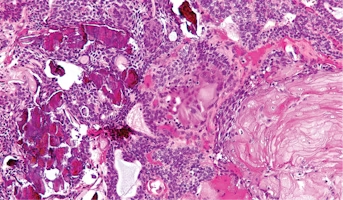Body Mass Index Trajectories in Craniopharyngioma


Shana McCormack
CBTN Data
Backer
Doris Duke Clinical Scientist Development Award
Internal Funding
About this
Project
Individuals who have undergone treatment for craniopharyngiomas in childhood experience lasting metabolic issues, most notably hypothalamic obesity. Hypothalamic obesity and related comorbidities including diabetes mellitus, fatty liver disease, and psychiatric disorders, impact health and quality of life of pediatric cancer survivors. Interventional studies consistently find that hypothalamic obesity is very challenging to treat. For this project, researchers will leverage the rich genetic data available through the Pediatric Brain Tumor Atlas (PBTA) to examine how background risk for obesity influences BMI trajectory in children with craniopharyngioma. Researchers propose to examine the trajectory of height, weight, and body mass index (BMI) in individuals in the PBTA with diagnoses of craniopharyngioma. The results of this project will be informative for clinicians who care for children with craniopharyngioma, will serve as a basis for proposals into future research, and is of interest to endocrinologists who focus on hypothalamic obesity.
Ask The
Scientists
What are the goals of this project?
Researchers will examine height, weight, and body mass index data from patients with craniopharyngioma in an effort to identify risk factors for hypothalamic obesity.
What is the impact of this project?
Understanding the risk factors that contribute to hypothalamic obesity will inform the treatment of patients with craniopharyngioma.
Why is the CBTN request important to this project?
The Pediatric Brain Tumor Atlas is a unique and comprehensive dataset on pediatric brain cancers, including craniopharyngioma. This data will serve as a foundation of this project.
Specimen Data
The Children's Brain Tumor Network contributed to this project by providing access to the CBTN clinical data and the Pediatric Brain Tumor Atlas.





